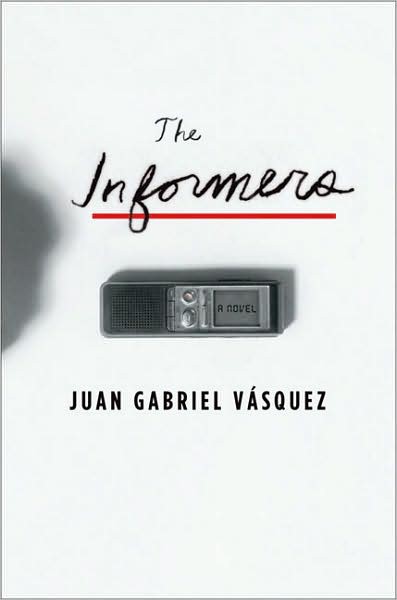
The Informers
کتاب های مرتبط
- اطلاعات
- نقد و بررسی
- دیدگاه کاربران
نقد و بررسی

Starred review from June 8, 2009
Betrayals public and private collide in Colombian author Vásquez's first novel to appear in the States, a crushing and beautifully tricky novel. Gabriel Santoro's publication of a book about a family friend, Sara Guterman, a German Jew who arrived in Colombia with her family in 1938, unexpectedly enrages his father, a famous professor of rhetoric (also named Gabriel Santoro) who prefers that the past remain forgotten. When the elder Gabriel has a change of heart (after a health crisis), it coincides with a sexual relationship he begins with Angelina, his physiotherapist. But after Gabriel confesses to Angelina long-held past transgressions shortly before his accidental death, Angelina turns against Gabriel on national television while the younger Gabriel watches. The younger Gabriel then delves into Sara's memories of wartime intrigue and anguish revolving around suspected Nazi sympathizers. But Gabriel's lust for the truth makes him susceptible to committing harsh betrayals of his own. In Vásquez's intricate narrative, morality is ambiguous and as treacherous as the early-1990s Bogotá backdrop, and its intelligence and unsparing tone will hold readers rapt through its many twists and turns.

July 1, 2009
Leisurely paced, intensely focused tale of collusion and intrigue, spotlighting Colombia's German community before, during and after World War II.
In 1988, journalist Gabriel Santoro published A Life in Exile, the story of a Jewish refugee who fled to Colombia in the years preceding the war. Gabriel wrote the book, he tells us, to give some perspective on the struggles of such emigrants. His motives didn't impress his father, also named Gabriel, a leading intellectual in Bogotá with a particular contempt for the shallowness and ephemerality of journalism. Father wrote a scathing review of the book that went far beyond the bounds of necessity or good taste and raised questions about his psychological need to make such an extreme condemnation. Perhaps he has something to hide? When he phones his son three years later, in the novel's opening pages, is he trying to make amends? Several other events, past and present, conspire to pique the journalist's curiosity. Why did Konrad Deresser, another member of the German-Colombian community, commit suicide shortly after the war when his son Enrique denounced him as a collaborator? Is the 1991 death of Santoro p're in a car crash really an accident? Along the way we meet a range of characters, some well integrated into Colombian culture despite their German roots, others more blatant and unabashed about their support for Hitler's policies even after the war. With both journalistic and personal reasons to pursue the truth, the younger Santoro tracks down Enrique, though he first has to endure the opprobrium of Enrique's son Sergio, as well as Angelina, the older Gabriel's mistress and perhaps betrayer.
An impassioned exploration of how the past erupts into the present and continues to shape our personalities and our fates.
(COPYRIGHT (2009) KIRKUS REVIEWS/NIELSEN BUSINESS MEDIA, INC. ALL RIGHTS RESERVED.)

























دیدگاه کاربران